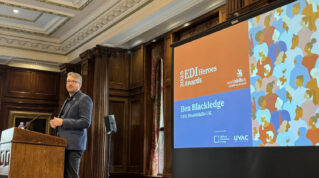Eight in ten of the UK’s colleges and post-16 academies are failing to meet a legal requirement to provide information on how visually impaired or blind students can access learning, new research has found.
The report, Technology and accessibility in further education, also revealed that half of general further education colleges failed a ‘mystery shopping’ exercise where researchers requested this information.
One student with an impairment surveyed for the report said it “sometimes feels like I just get
ignored” by colleges, which “kind of makes me question my future”.
Researchers also found over 90 per cent of 23 specialist colleges audited have not met a legal requirement for a statement on accessibility on their websites.
Colleges’ compliance with accessibility rules worse than universities
Under The Public Sector Bodies (Websites and Mobile Applications) (No.2) Accessibility Regulations 2018, FE colleges are legally obliged to develop accessible websites, learning, teaching and assessment materials.
This can include giving users the option to change font size, for there to be sufficient contrast in the colours used, and for websites to sufficiently describe what is on a webpage so software that reads it out can properly explain to a visually impaired user what the page is showing.
Analysis of the websites of over 400 UK post-16 providers, including colleges, sixth forms
and 16-19 academies revealed only 13.36 per cent were compliant with the regulations – the lowest of all public sectors.
Forty-nine per cent of universities were compliant, while the most compliant was the police, with over 60 per cent.
“After three years of the regulations being in effect, for colleges to be significantly behind to this extent is symptomatic of a sector that is unable to react,” reads the report, carried out by
accessibility consulting company All Able.
Eight out of ten colleges do not provide useful or legally-required information
As part of the 2018 regulations, public bodies must produce accessibility statements, which helps disabled people navigate accessibility issues and signposts support.
The providers’ websites were analysed for their statements, and it was found 127 (29.7 per cent) had no statements publicly available, while 195 (45.6 per cent) provided poor advice in All Able’s view, and 34 (7.9 per cent) had statements that did not meet the regulations.
This means eight out of ten colleges do not provide information that is useful or meets legal requirements, according to the report.
Separate to this research, All Able analysed the websites of 23 UK specialist colleges that provide to young people with learning difficulties and disabilities and found 21 had no statement or a ‘poor attempt’ at one on their websites.
Researchers also contacted a sample of colleges via email or a web form as a blind
person looking to enrol who wanted to get in touch with the disabled student support service and find out about the accessibility of the college’s digital platforms.
Almost half of the colleges did not respond, and where colleges did respond, one-third could not say which virtual learning environment they used, which tells the student what technology they will need to access it.
Just three per cent gave legally required information on the accessibility of the learning environment or directed the person getting in touch to whether systems will be compatible with assistive technology.
Specialist provision system ‘under significant pressure’
The trust’s head of education, Tara Chattaway, criticised colleges for a “prevailing culture where student support departments are viewed as the only teams that have a responsibility to consider the needs of people with disabilities”.
The report reasons that the “system of specialist provision is under significant pressure,” citing a 2019 Royal National Institute of Blind People report showing just under half of local authorities have cut or frozen vision impairment education services.
It recommends “urgent” action to improve legal compliance, with the government targeting guidance on the requirements at college leadership.
Specialist providers’ network Natspec said it takes the recommendations “seriously,” and “will continue to work to improve accessibility for all students” through its assistive technology support service, TechAbility.
“We look forward to supporting the work of the trust and helping to ensure the new resources being developed are available to all our members,” a Natspec spokesperson added.
Association of Colleges chief executive David Hughes said colleges “take very seriously the need to be accessible for everyone, including blind and partially sighted students.”
He promised the association will “look carefully” at this report and is “keen to see what needs to be done”.

















Your thoughts